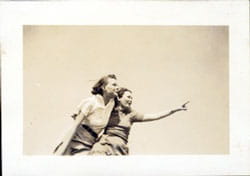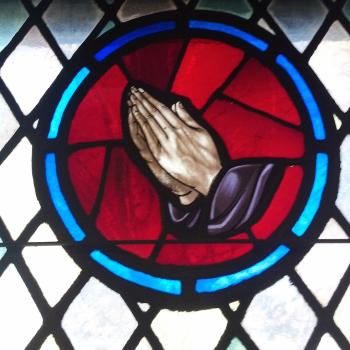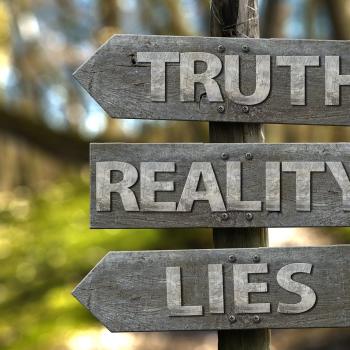By Kate Dugan
 A few weeks ago, I participated in a mini-From the Pews in the Back book tour in Minnesota. I joined three other authors in reading excerpts from the book and discussing some of its questions and reflections.
A few weeks ago, I participated in a mini-From the Pews in the Back book tour in Minnesota. I joined three other authors in reading excerpts from the book and discussing some of its questions and reflections.
As a co-editor of this collection, I have read these women's pieces countless times. But as one of them, a long-time friend of mine, read from hers, I was struck by her courage in a way that the written word just didn't convey anymore. She stood in front of a room of 80 people, mostly Catholics, on a Catholic college campus, and said: "I am a lesbian who grew up Catholic."
Questions of sex and sexuality are pressing for young women with experiences of Catholicism. The Church's proclamations on birth control or homosexuality or gender identities fail to offer nuanced thinking on what it means to be human. As one woman in our collection quipped, "Who doesn't like celibate men dictating the rules about sex?"
Theologian Tom Rausch, SJ., in Being Catholic in a Culture of Choice (Liturgical Press, 2007), describes the attitudes of young Catholics he sees in his classroom on a Jesuit campus. They have, he observes, "little patience with what they see as the official Church's negative attitude toward sexuality; that is, issuing black-and-white condemnations rather than articulate positive values" (p. 7).
Through the month of November, the several contributors to this column will be taking up questions of sex and sexuality. This feels especially appropriate after last week's overturning of Maine's marriage equality law. These issues are at the forefront of our lives. Sex and sexual commentary are ubiquitous in our culture -- in advertisements for food, pop culture references, and religious institutions.
These are not easy questions, nor are their struggles brief. They are punctuated by deep questions of identity and concerns about the health of our community.
I am struck, in thinking about the ways Catholic women negotiate sex and sexuality in our religious institution, by the courage it takes to discuss these questions. And I look forward to this month's discussion of them.
What are some of the ways you have negotiated questions about sex and sexuality in your religious traditions? Are there ways that your religious identity conflicts with or supports your sexual identity? How can interfaith conversations about sex and sexuality shape our society's understanding of these issues?
Read earlier installments of Young Women & Catholicism -
- "In All Things,"on the unique identity of young Catholic women.
- "Young, Female, and Catholic," on the "Catholic glue"that keeps us in the Church.
- "Role Models," on the need for models of faith and service.
- "Defending the Saints," exploring the role of saints in the lives of Catholics.
- "Spiritual but Not Religious?,"addressing the ambivalence many young Catholics feel about the religious structures of the Church.
- "This Is What a Catholic Woman Looks Like,"exploring stereotypes of the young Catholic woman.
- "Sacred and Secular," on the link between spiritual practices and the secular life.
- "Spirituality and Vocation," reflecting on the ways spirituality affects career choices.
Kate Dugan is a co-editor ofFrom the Pews in the Back: Young Women & Catholicism and a Ph.D. student at Northwestern University.
11/13/2009 5:00:00 AM




